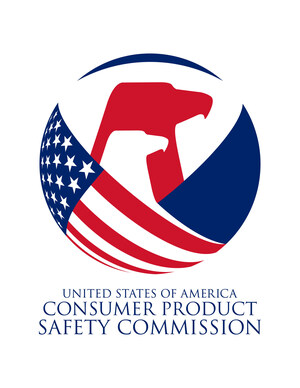Action prompted by ongoing harm to children from ingested magnets
WASHINGTON, Aug. 7, 2012 /PRNewswire-USNewswire/ -- In an effort to prevent children from suffering further harm, U.S. Consumer Product Safety Commission (CPSC) staff filed an administrative complaint against Zen Magnets LLC, of Denver, Colo., alleging that their products contain defects in the design, packaging, warnings and instructions, which pose a substantial risk of injury to the public.
(Logo: http://photos.prnewswire.com/prnh/20030904/USCSCLOGO)
The Commission voted 3-1 to approve the filing of the complaint, which seeks, among other things, an order that the firm stop selling Zen Magnets™ Rare Earth Magnet Balls, notify the public of the defect and offer consumers a full refund.
Eleven manufacturers and/or importers of sets of small, powerful, individual magnets, all of which are made in China, have voluntarily agreed to the CPSC staff's requests that they stop the manufacture, import, distribution and sale of their magnet products. Zen Magnets and Maxfield & Oberton (importer of Buckyballs® and Buckycubes™) are the only companies that have refused to comply, to date.
Zen Magnets are powerful, chrome-plated, rare earth magnet balls about 5 millimeters in diameter that are made in China and sold online in sets of 72, 216, and 1,728.
The complaint explains that when two or more magnets are swallowed, they can pinch or trap the intestinal walls or other digestive tissue between them resulting in acute and long-term health consequences. Magnets that attract through the intestines result in progressive tissue injury. Such conditions can lead to infection, sepsis and possibly death. Medical professionals may not be aware of the dangers posed by ingestion and the corresponding need for immediate medical intervention in such cases, exacerbating the life-threatening internal injuries.
The complaint alleges that the Commission has received reports of tweens and teenagers using similar products to mimic piercings of the tongue, lip or cheek which have resulted in incidents where the product is unintentionally inhaled and swallowed.
The complaint alleges that in 2009 and 2010, the firm advertised and marketed the product as "fun to play with" strong rare earth magnets that "look good on cute people." It further alleges that in October 2011, the staff notified the firm that the product did not comply with the federal mandatory toy standard, ASTM Standard F963-08. The standard requires that such magnets not be marketed for children younger than 14.
The complaint also alleges that the firm included a small slip of paper in some of the models that read:
"Warning: DO NOT SWALLOW MAGNETS. How old do you have to be to play with these? Dunno. 14 years old in the U.S. for a strong magnetic toy, unless it's not a toy, then no age limit, but they're fun magnets spheres (sic), aren't they a toy? Unless it's a "science kit" then the government age recommendation is 8+. But really, it's whatever age at which a person stops swallowing non-foods."
In 2011, Zen Magnets began to advertise their product as a "magnetic science kit." While the packaging warns that "strong magnets can cause fatal intestinal pinching," and advises to "keep away from kids and pets who don't understand these dangers," it also cautions consumers to "place swallowing magnets on your don't do list along with breathing water, drinking poison, and running into traffic."
The complaint explains that recently, the firm posted on its website that "CPSC recommends minimum age of 14."
The Commission staff alleges in its complaint that Zen Magnets warning and labeling are defective because they do not effectively communicate the hazard associated with ingestion of the product. The complaint further alleges that the product's design and packaging are also defective because they fail to prevent children from gaining access to the product, and do not allow parents or caregivers to know readily if a magnet is missing and is potentially within the reach of a young child. The complaint alleges that once separated from the packaging, the individual magnets themselves display no warning against ingestion or aspiration, and the small size of the individual magnets precludes the addition of such a warning.
The Commission staff proposed the administrative complaint against Zen Magnets after discussions with the company failed to result in a voluntary recall plan that CPSC staff considered adequate. CPSC staff seeks the remedies outlined in the complaint to stop further incidents and injuries to children.
Photos available at http://www.cpsc.gov/cpscpub/prerel/prhtml12/12243.html?tab=recalls
CPSC Consumer Hotline: (800) 638-2772
CPSC Media Contact: (301) 504-7908
SOURCE U.S. Consumer Product Safety Commission
WANT YOUR COMPANY'S NEWS FEATURED ON PRNEWSWIRE.COM?
Newsrooms &
Influencers
Digital Media
Outlets
Journalists
Opted In





Share this article